Father Frederic Baraga established the beginnings of Saint Andrew Church when he built the first church, St. Mary’s Mission, in 1833 amid Native American cornfields on the west bank of the Grand River.
Two years later, when Father Andreas Viszoczky became the pastor, he found a small church, rectory, and school building that Father Baraga had built. After the Native population dispersed, Father Viszosky built a new church on Monroe Avenue, naming the parish for St. Andrew, his patron saint. The church, built from Grand River limestone, was completed in 1850 and was the largest building in town.
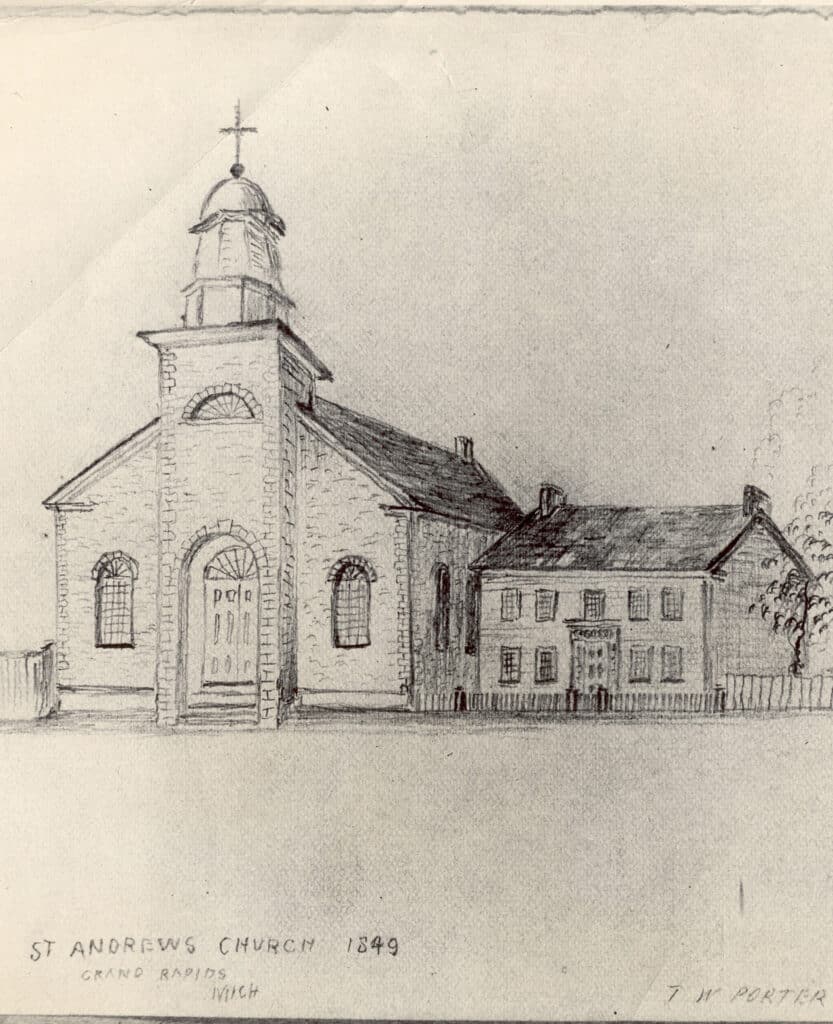
The Monroe Avenue church was soon too small for its growing population, so beginning in 1875, a new church was built at its present location on Sheldon Boulevard. When Saint Andrew church was completed in 1876, it was a graceful structure and the pride of the ever-expanding city which grew around it. In 1882, Pope Leo XIII established the new diocese of Grand Rapids. The first bishop, Henry J. Richter of Cincinnati, was named in early 1883. He selected Saint Andrew church as his cathedral and was consecrated in this building on April 22, 1883.
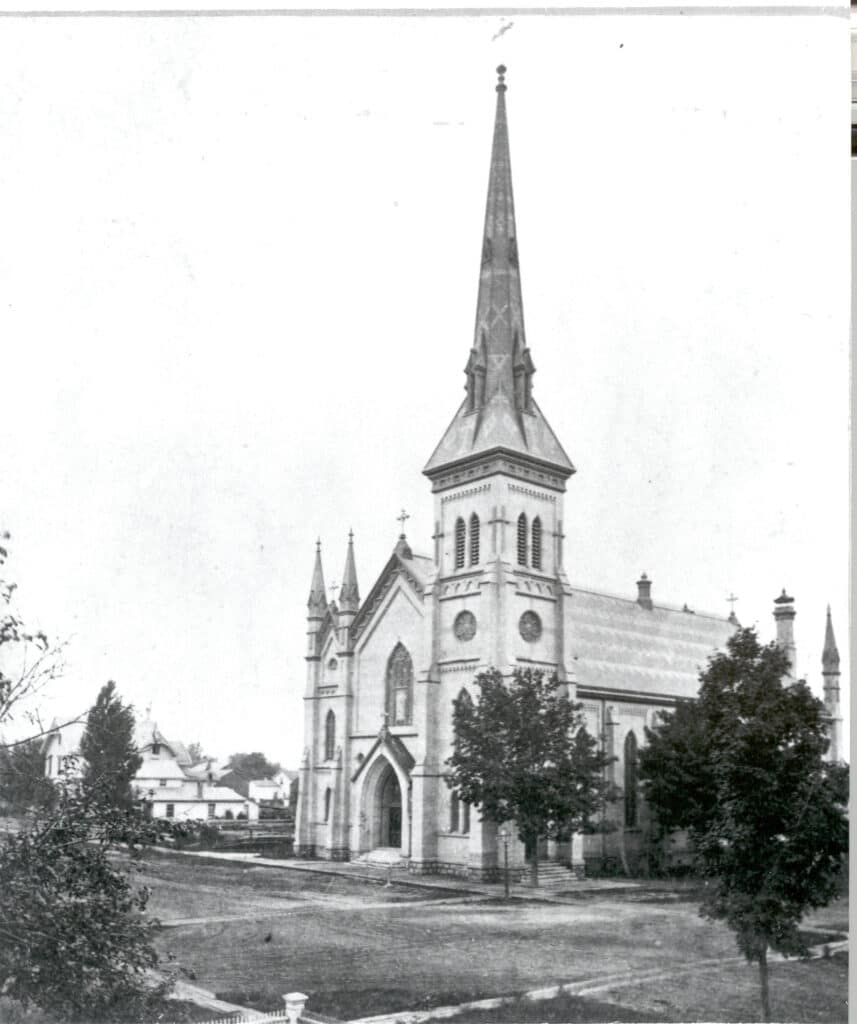
Following a devastating fire in 1901, the cathedral was restored, expanded, and then re-dedicated and consecrated during celebrations on July 4, 1903 involving thousands of Grand Rapids citizens and parishioners as well as bishops, priests, local officials, and the apostolic delegate to the United States.
Hidden above the ceiling that you see in the cathedral today are the original massive wooden beams, still charred from that major fire in 1901 which was caused by lightning.
July 4, the anniversary of the re-dedication of the Cathedral of Saint Andrew in 1903, is an official feast day for the Diocese of Grand Rapids.
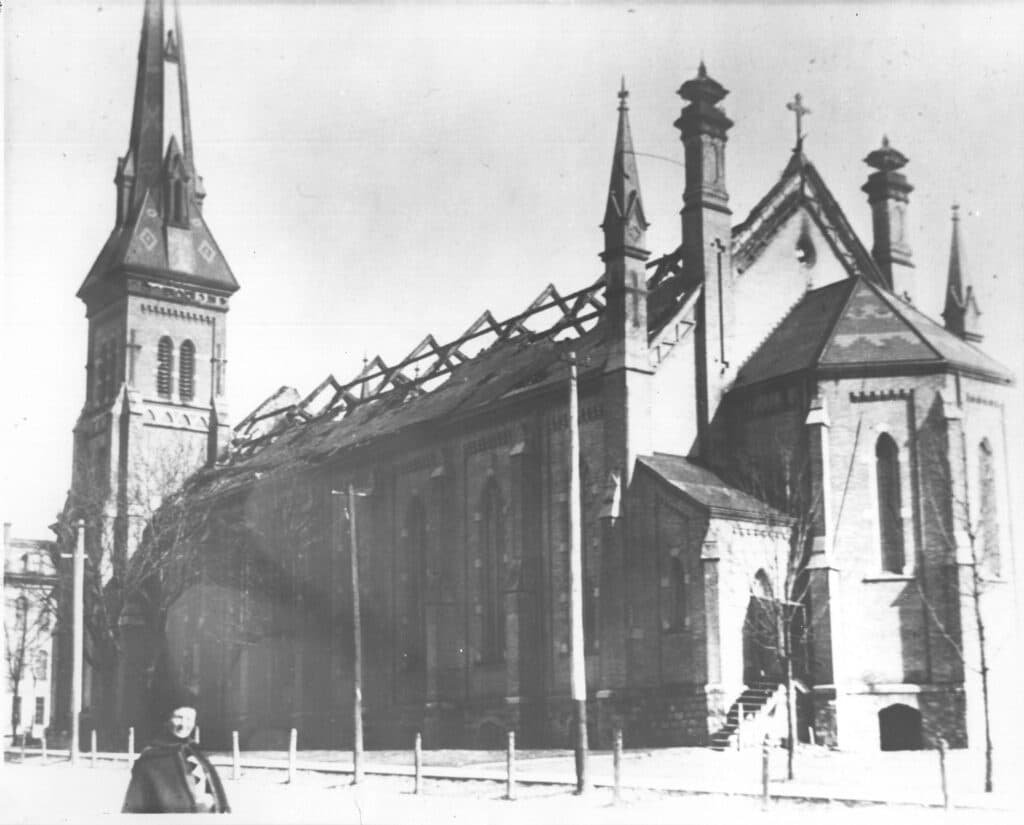
Another major reconstruction and expansion took place in 1961-1963, when the Saint Ambrose Chapel wing was constructed. This renovation also featured the closing off of Maple Street from Sheldon to Division, providing a surrounding green space.
In 1979-1980, another major renovation occurred, where the sanctuary was expanded, a vesting and gathering area created, and the interior was decorated in muted earth-tone colors.
The most recent renovation occurred in 1997-2000. This is the Cathedral as you see it today, with the baptismal pool, the refurbished stained glass and the bas-relief Stations of the Cross. In 2002 the pipe organ was installed.
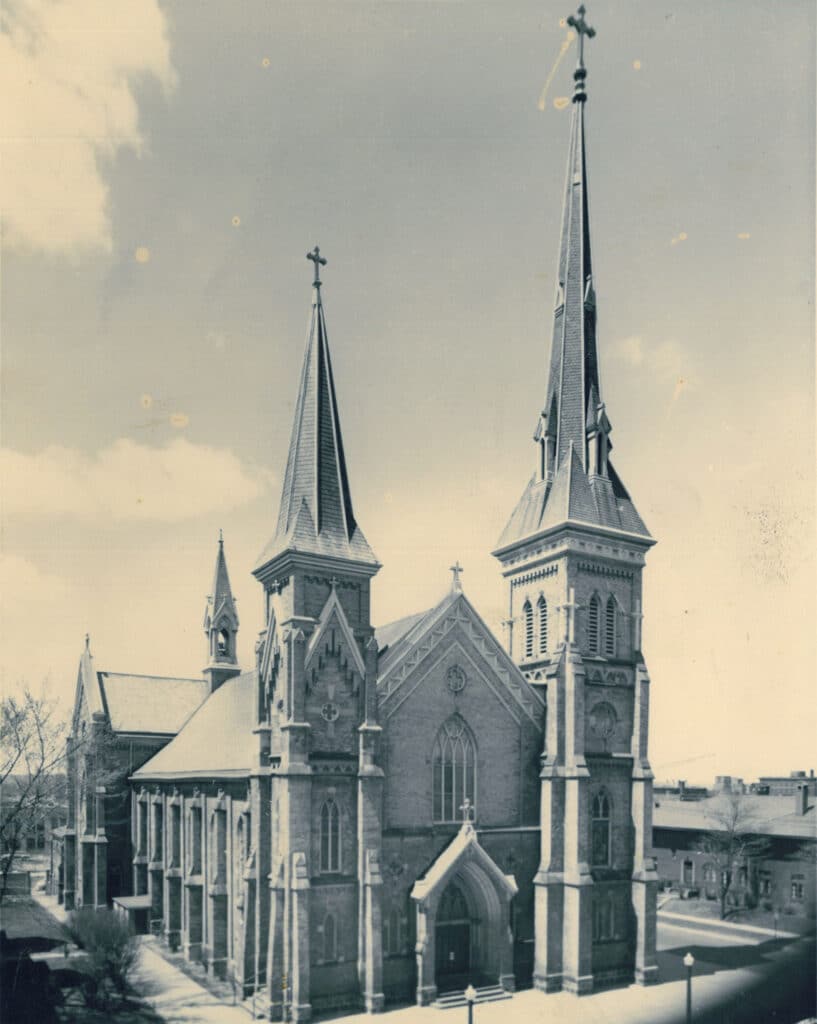
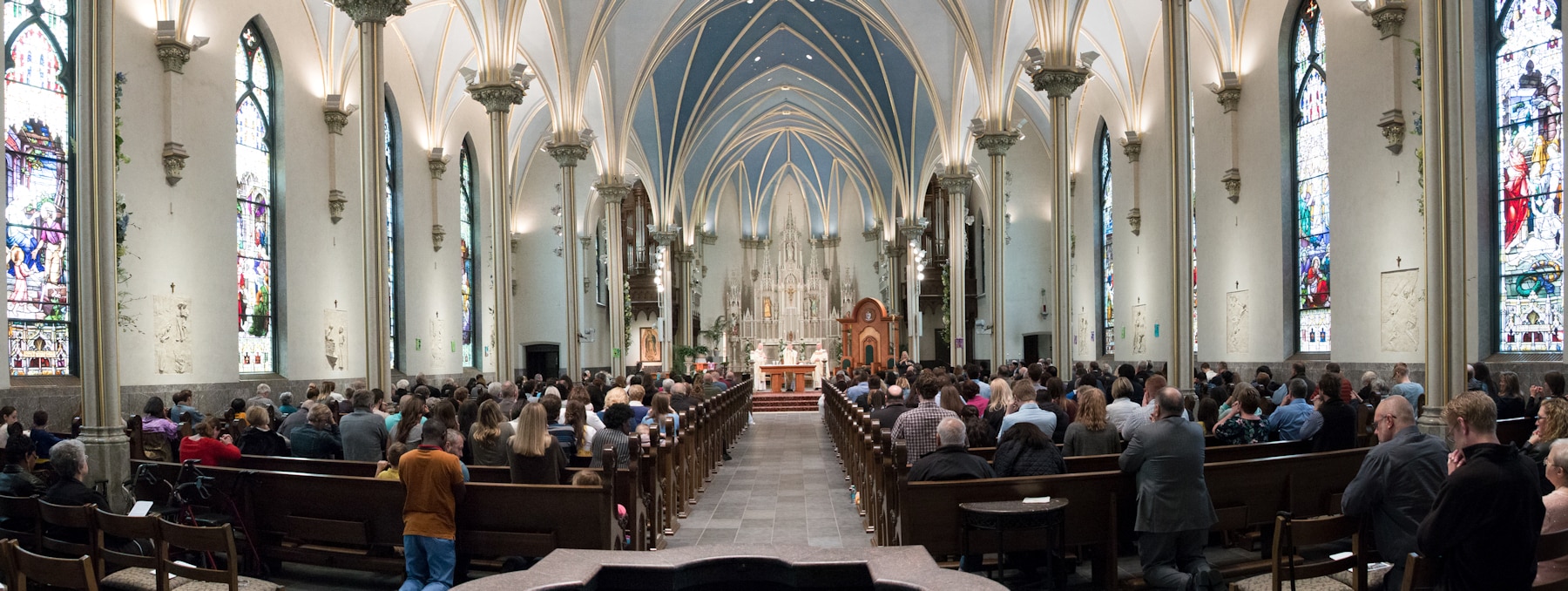
The Diocese of Grand Rapids was perhaps the first in the nation to televise the Sunday Mass live. In the mid-1960’s, provision was made within the cathedral itself for a television studio. The current studio and cameras are updated for digital broadcast and the Sunday 10:00am Mass can be seen weekly on WXMI FOX 17. In 2011 the Cathedral began to live stream the Sunday Mass on the diocese website and now both the Sunday 10am Mass and 12pm Spanish Mass can be viewed on Facebook.
In 2009, the front entrance of the Cathedral was redone and the current Piazza Secchia was laid. The piazza is patterned after the Michelangelo-designed piazza on the Capitoline Hill in Rome.
In 2010 the decision was made to take down St. Andrew’s Elementary School. In its place the Diocese of Grand Rapids created a new green space dedicated to the early Catholic Pioneer Bishop Baraga. The view of the Cathedral is now opened from Jefferson to Sheldon.
Today, the Cathedral of Saint Andrew proudly stands in the central city as a place of acceptance and hospitality to its neighbors and to the community at large.
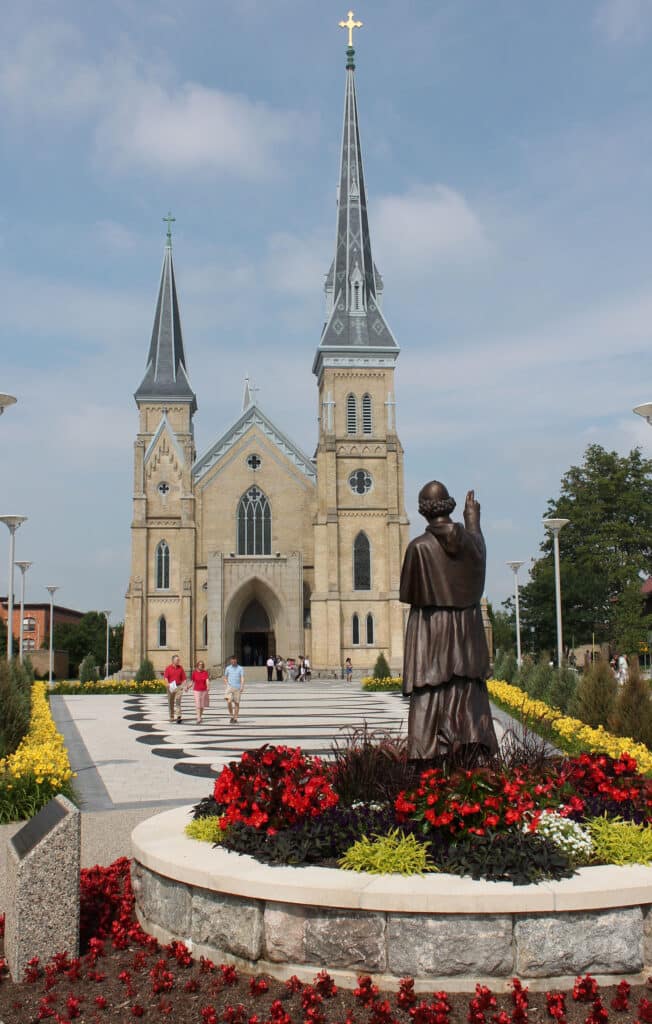

Contact our business manager, Linda Sepulveda, to schedule a docent-lead tour.
616.456.1454 x1902
lsepulveda@grcathedral.org
215 Sheldon Blvd. SE, Grand Rapids, MI 49503
616-456-1454 | office@grcathedral.org
Website by Digital Glass